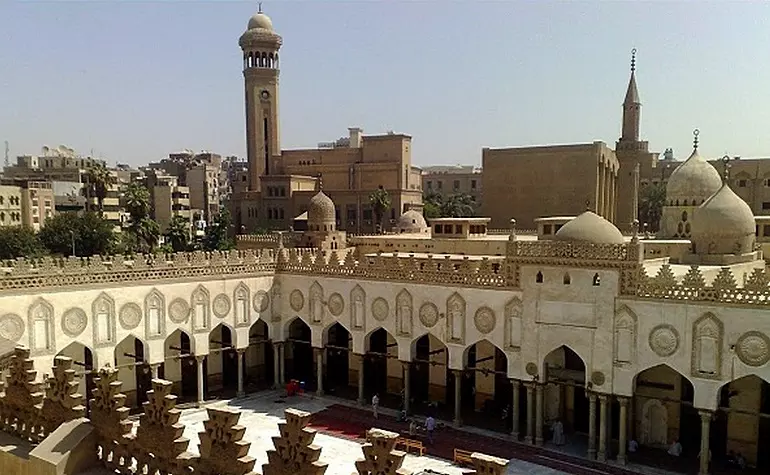Egypt’s Al-Azhar University has suspended Imam Ramadan Imam, a professor of theology and philosophy, after he issued a controversial fatwa (Islamic legal ruling) permitting the theft of electricity and water due to rising prices. The suspension will last for three months or until the investigation into his actions is complete.
Imam, who teaches at the university’s Cairo campus, shared his opinion in a video titled “Steal from them, God will have mercy on you,” which has gained significant attention on social media. In the video, he argues that stealing basic utilities is permissible in response to what he perceives as government exploitation of citizens through increased utility costs.
The university has condemned his fatwa, stating that it violates Islamic jurisprudence and contradicts core teachings of the religion. Al-Azhar emphasized that such opinions are not in line with Egyptian law or Islamic teachings, which govern public institutions like Al-Azhar.

Imam’s argument was based on the belief that the government is unfairly raising prices, claiming, “I issued a fatwa in which I permit the theft of electricity, water, and gas, as long as the government calls restoring some rights theft.” He criticized the government for allegedly providing free electricity to certain state institutions, including the military and police while raising prices for the public.
Egypt’s Dar Al-Iftaa, the official authority for issuing religious legal opinions, quickly responded, declaring the fatwa invalid. In a statement on Facebook, Dar Al-Iftaa clarified that using state resources illegally is forbidden under Islamic law, as it harms public interests, violates trust, and promotes corruption.
A fatwa is a formal legal opinion or ruling issued by a qualified Islamic scholar or authority, known as a mufti, on matters related to Islamic law (sharia). Fatwas are not from or included in the Qur’an. It is typically sought when there is ambiguity or uncertainty regarding specific religious practices, personal conduct, or societal issues.
The fatwa comes at a time when the Egyptian government has raised electricity prices by 17 to 40 percent as of 1 August, citing rising fuel costs. Penalties have also been imposed for late payments, further straining citizens already facing economic challenges.


